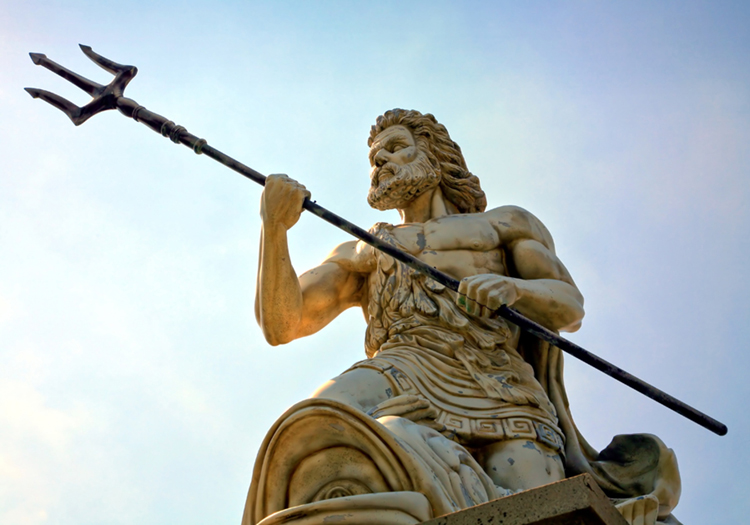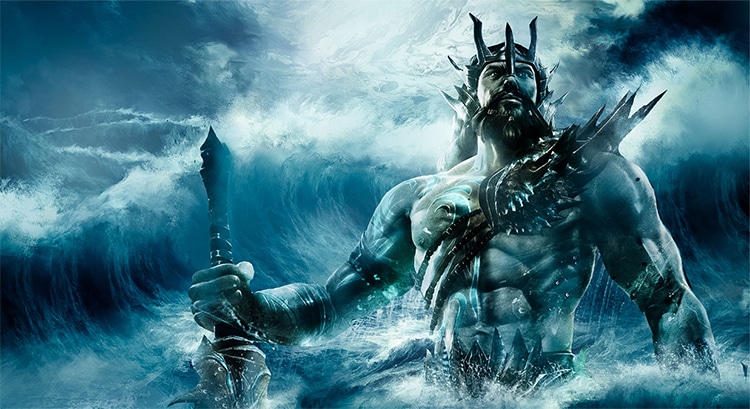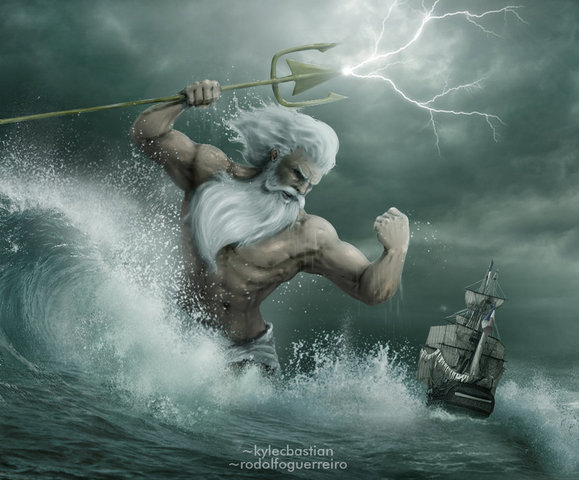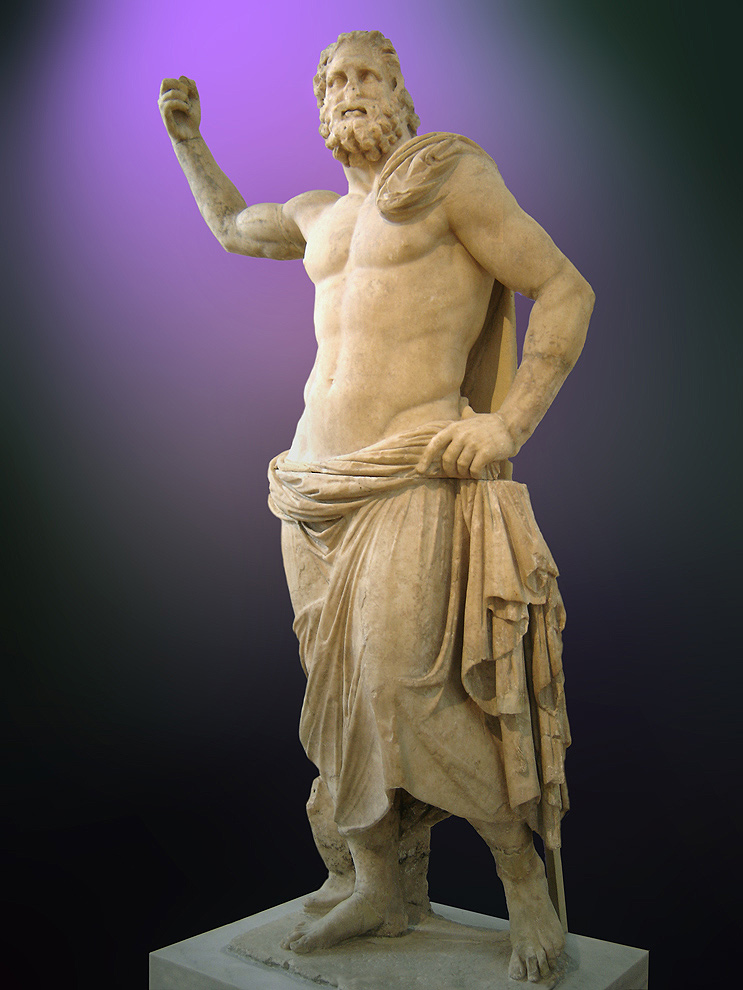Poseidon, the Greek god of the sea, is a formidable figure in mythology. Often depicted as a bearded, muscular man carrying a trident, he is associated with the sea, earthquakes, and horses. Poseidon is a complex deity, both feared and revered by the ancient Greeks.
In this article, we will take a deep dive into the mythology surrounding Poseidon. We will explore his origins, his powers, and his place in Greek culture. We will also examine how Poseidon has been portrayed in art, literature, and popular culture over the centuries.
Origins of Poseidon
Like many of the Greek gods, Poseidon’s origins are shrouded in mystery. According to some myths, he was the son of Cronus and Rhea, two Titans who ruled the universe before the Olympians came to power. Other myths suggest that Poseidon was one of the children of Zeus and Hera, born after they overthrew the Titans.
In either case, Poseidon was one of the twelve Olympian gods, who ruled over the world from their home on Mount Olympus. He was often associated with his brother Zeus, the king of the gods, and his sister Demeter, the goddess of agriculture.
Powers of Poseidon
Poseidon’s powers were vast and varied. As the god of the sea, he was responsible for everything that happened in the oceans and seas. He could calm the waves or create a storm with a flick of his trident. He was also known for his ability to create earthquakes, which he did by striking his trident on the ground.
Poseidon was also closely associated with horses. In fact, he was sometimes referred to as the “tamer of horses.” He was said to have created the first horse by striking his trident on the ground, and he was often depicted riding a chariot pulled by horses.
Myths and Legends of Poseidon
Poseidon was a central figure in many Greek myths and legends. One of the most famous is the story of the battle between Poseidon and Athena for control of Athens. According to the myth, the two gods competed to see who could offer the city the best gift. Poseidon struck the ground with his trident, creating a spring of salt water, while Athena planted an olive tree. The people of Athens chose Athena’s gift, and she became the city’s patron goddess.
Another famous myth involving Poseidon is the story of Theseus and the Minotaur. Theseus, a hero of Greek mythology, was tasked with slaying the Minotaur, a monstrous creature that lived in a labyrinth. With the help of Ariadne, the daughter of King Minos, Theseus was able to defeat the Minotaur and escape the labyrinth. However, on his way home, he forgot to change the sails of his ship from black to white, as he had promised his father. This caused Poseidon to send a storm, sinking the ship and killing many of Theseus’s companions.
Depictions of Poseidon in Art and Literature
Poseidon has been a popular subject in art and literature for centuries. In ancient Greece, he was often depicted in sculpture and painting, usually as a muscular man with a trident and a beard. Many of these images were found on vases, plates, and other household items, as well as in temples and public buildings.
In literature, Poseidon has been featured in many myths and stories, including Homer’s epic poems “The Iliad” and “The Odyssey.” In “The Odyssey,” Poseidon is portrayed as the antagonist to the hero, Odysseus, who blinded the god’s son, Polyphemus. As a result, Poseidon sends storms and obstacles to prevent Odysseus from returning home.
Poseidon in Popular Culture
Poseidon’s influence extends beyond ancient Greek culture and into modern-day popular culture. He has been portrayed in movies, TV shows, and video games, often as a powerful and intimidating figure.
One of the most famous depictions of Poseidon is in the 1981 film “Clash of the Titans,” in which he is played by actor Harry Hamlin. In this film, Poseidon is shown as a wrathful god who seeks revenge against the mortal Perseus.
In the popular video game series “God of War,” Poseidon is a recurring character who serves as both an antagonist and ally to the game’s protagonist, Kratos. In the game, Poseidon is depicted as a powerful and ruthless god who will stop at nothing to achieve his goals.
Conclusion
Poseidon, the god of the sea, remains one of the most fascinating figures in Greek mythology. His power, his personality, and his relationships with other deities have captivated people for centuries. Whether he is depicted as a wrathful god or a benevolent ally, Poseidon continues to influence modern-day culture in many ways.
As we wrap up our exploration of Poseidon, we hope you have gained a greater appreciation for this powerful deity and his place in Greek mythology. Whether you’re a fan of ancient history or modern-day pop culture, Poseidon is a figure that is sure to intrigue and inspire. So, the next time you find yourself near the ocean, remember to pay homage to the mighty Poseidon, the god of the sea.
FAQs about Poseidon
- What was Poseidon’s personality like?
Poseidon was often portrayed as a moody and unpredictable deity, prone to fits of anger and violence. However, he could also be benevolent and generous, especially to those who showed him respect.
- What was Poseidon’s relationship with other gods?
Poseidon was closely associated with his brother Zeus, the king of the gods. However, he also had a contentious relationship with many of the other Olympian deities, including Athena, Apollo, and Hera.
- Why was Poseidon often depicted carrying a trident?
The trident was a symbol of Poseidon’s power over the sea and was often used as a weapon in battle.






Comment here